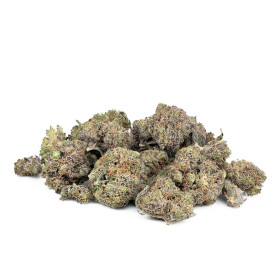Marijuana
Exploring the Health Benefits of Cannabis: Fact vs. Fiction
In recent years, the conversation around cannabis has shifted significantly. Once viewed through a lens of skepticism and legal prohibition, cannabis is now being reconsidered for its potential health benefits. This article aims to dissect the dialogue surrounding cannabis, distinguishing between scientifically backed facts and common misconceptions, especially in the context of Canadian legalization and use.
Introduction
Cannabis has been a subject of debate for decades, oscillating between condemnation and acceptance. In Canada, the legalization of cannabis for both medical and recreational purposes has opened up a new frontier of exploration into its health benefits. However, with widespread information and misinformation, it’s crucial to separate fact from fiction.
Understanding Cannabis and Its Components
Before delving into the health implications of cannabis, it’s essential to understand its components. Cannabis contains several active compounds, with THC (tetrahydrocannabinol) and CBD (cannabidiol) being the most prominent. THC is known for its psychoactive effects, while CBD is recognized for its potential therapeutic benefits without the high.
Is Cannabis Use More Detrimental to Brain Health?
One of the most common concerns about cannabis use is its impact on brain health. Research indicates that while cannabis can affect short-term memory and cognitive function, especially when used heavily during adolescence, the long-term effects are still a subject of ongoing research. It’s important to consider factors such as the age of onset, frequency of use, and the potency of the cannabis consumed.
Health Effects of Cannabis
According to information gathered from various sources, including the insightful article on Top Shelf Hemp, cannabis has been linked to several health benefits. These include pain relief, especially for chronic pain, reduction in anxiety and depression symptoms, and potential benefits for those with neurological disorders like epilepsy. However, it’s crucial to approach these findings with a nuanced perspective, acknowledging both the potential benefits and risks.
Cannabis and Chronic Pain Relief
Chronic pain is one of the most common reasons individuals turn to cannabis. Studies suggest that cannabinoids can reduce pain by interacting with pain receptors in the brain. This property has made cannabis a potential alternative for people who are looking for relief from chronic pain conditions.
Cannabis in Mental Health: Anxiety and Depression
Mental health is another area where cannabis is said to have benefits. While some users report relief from symptoms of anxiety and depression, medical professionals urge caution. The relationship between cannabis and mental health is complex and can vary greatly among individuals.
Neurological Disorders and Cannabis
For neurological disorders such as epilepsy, cannabis, particularly CBD-rich strains, has shown promise. The FDA has approved the use of CBD in treating rare forms of epilepsy, underlining its potential in managing seizures.
Cannabis: A Double-Edged Sword?
While the benefits of cannabis are promising, it’s essential to acknowledge its potential risks. Overuse or the use of high-THC strains can lead to adverse effects, including increased risk of psychiatric disorders, dependence, and cognitive impairment. The key lies in moderation and informed use.
Navigating Cannabis Use in Canada
For Canadians, navigating cannabis use means understanding the laws, potential health benefits, and risks. With Canada being at the forefront of cannabis legalization, Canadian users have the unique opportunity to explore its benefits in a legal and regulated environment.
Conclusion
The exploration of the health benefits of cannabis is an ongoing journey. With every study and personal testimony, we gain a better understanding of how cannabis interacts with the human body. It’s crucial, however, to remain critical, seeking out fact-based evidence and consulting healthcare professionals when considering cannabis for health purposes.
In distinguishing between the health benefits of cannabis—fact versus fiction—Canadians are encouraged to educate themselves, remain skeptical of unfounded claims, and embrace the nuanced reality of cannabis use. As research continues to evolve, so too will our understanding of this complex plant and its place in our health and society.















